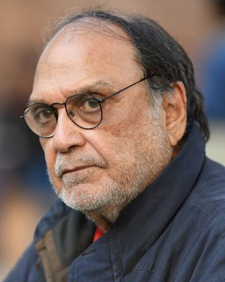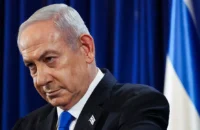On 9 November 2019, Prime Minister Imran Khan got together with thousands of Sikh pilgrims to inaugurate the Kartarpur Corridor on the bank of river Ravi in Punjab in Pakistan.
Prime Minister of India Narendra Modi thanked Pakistan for opening up the route to the last resting place of the great Sikh founder-guru Nanak Dev in accordance with an agreement reached between the former Pakistan Prime Minister Nawaz Sharif and former Indian statesman-PM Atal Behari Vajpayee in 1999.
The Sikh yatrees were visibly touched as they heard PM Khan speak of the “opening up borders for free movement and trade with India” while ex-cricketer-politician Navjot Singh Siddhu regaled then with his hortatory verse.
Things looked good till the Indian media “revealed” the presence of a group of “Khalistani” agents at Kartarpur. That meant that the Corridor was actually a conspiracy to undermine India’s integrity by luring the Sikhs away and creating a breakaway state in India. References to the past were helpful when Pakistan actually did that; but some Indian opinion writers watered down the alarmism with words of hope.
Shekhar Gupta in The Print wrote: “Imran Khan’s fantasy to revive Khalistan isn’t happening because Sikhs aren’t gullible” and arrived at the following comment: “…it is time to forget subversive fears. India isn’t made of porcelain. One of the holiest shrines for Indian Sikhs and so many non-Sikh Indians is open now. It’s a moment of collective joy for us to cherish. Switch off those TV discussions on the ‘return of Khalistan’. It isn’t happening. Don’t paint the devil on the wall.”
On the Pakistani side the hounded opposition suddenly thought of the “betrayal” of “Kartarpur” after Modi “annexed” the Indian-administered Kashmir. But the people at large didn’t bite and were happy to receive more pilgrims. Imran Khan covered his head as he paid tributes to Guru Nanak Dev. Some realized that he was himself “connected” because of his devotion to Baba Farid of Pakpattan whose great Punjabi verse is actually found in Granth Sahib. (His wife belongs to the family of custodians of the tomb of Baba Farid.)
The “largest gurudwara in the world” was thought of by Imran Khan and the chief of the Pakistan Army General Qamar Javed Bajwa. The impressive gurudwara came about in ten months because the army took charge of it and built it in record time. If the army is behind the project is it therefore a conspiracy to alienate the Sikhs of Indian Punjab from India?
Or is General Bajwa interested in “cooling the eastern front” because his challenge from the “western front” is too big for the Pakistan Army to handle? India kills Pakistani troops on a permanent basis on the Line of Control (LoC) but the new development is that Afghanistan too kills Pakistani troops across the wire-fence Pakistan has erected on the challenged Durand Line.
The odds on the western front are enormous: the hostile elements include the Taliban (Afghan and Pakistani) backed by Al Qaeda which is fully entrenched in Afghanistan, and the Islamic State whose appeal for the Pakhtun youth is increasing; to say nothing of the ordinary Afghan who hates Pakistan for having sheltered these groups in the past.
Pakistan has tried diplomacy against the removal by India of Article 370 from the Constitution to change the status of Indian-administered Kashmir prior to sending in troops to suppress the Muslims of the Valley. The world has reacted negatively to the abuse of human rights in Kashmir but Pakistan has failed to get the world, including the Islamic World, to condemn the “annexation” of Kashmir by India.
What Pakistan has learned, whether it confesses it or not, is the fact that under the Simla Agreement the world will “not decide” the dispute of Kashmir between India and Pakistan.
Pakistan is under pressure. It is economically handicapped by the stringency of the conditionalities of the IMF and threatened with sanctions from the Forward Action Task Force (FATF), ironically presided over by China whose China-Pakistan Economic Corridor (CPEC) requires peace in the region and possible participation in the trade route by India with whom China enjoys a two-way trade of $80 billion.
After the exit of the US from Afghanistan, Pakistan faces uncertainty across a border it
has failed to control as smuggling across it scuttles all policies of price control inside Pakistan. Is it time for an India-Pakistan “normalisation” that once looked real under Prime Minister Vajpayee?
There was a time when India as a status quo power wanted Pakistan to join talks on bilateral “normalisation”, but “Kashmir jihad” prevented Pakistan from accepting it. Pakistan stuck to “the precondition of Kashmir” which it now acknowledges is not a realistic policy option. It thought it could compel India to come to the table under pressure from “jihad” but this so-called jihad began to describe its natural parabola, slumped towards the end of the 1990s – and began to hurt Pakistan. Today, Imran Khan – backed by the Pakistan Army – is using the “n” word. The Kartarpur Corridor is the door of opportunity for both countries.
Khaled Ahmed is a Consulting Editor, Newsweek Pakistan.
♣



























